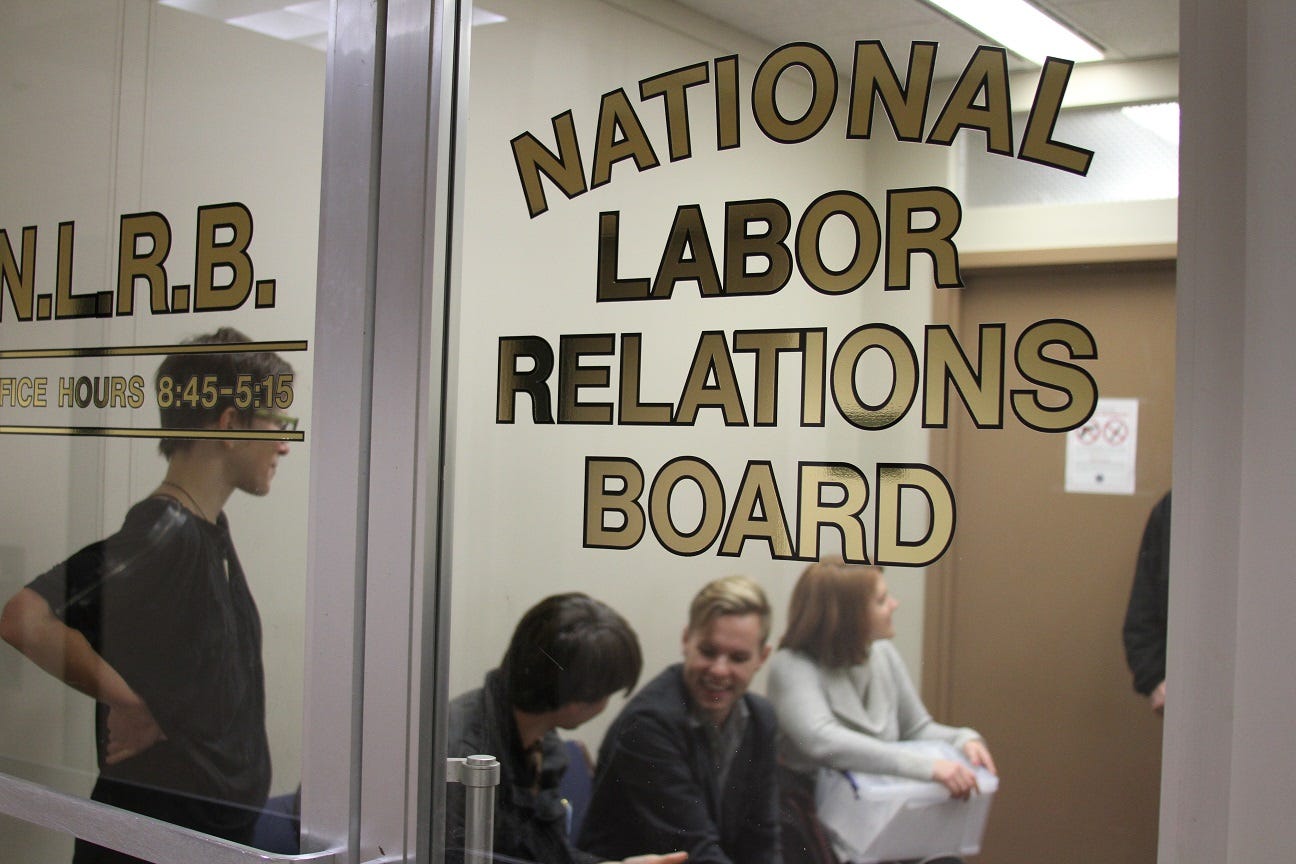Update on Constitutional Challenges to the NLRB
Two more district courts have weighed in.
On July 23 of this year, judge Alan Albright (Republican, Western District of TX) granted SpaceX’s request for a preliminary injunction (PI) against a run-of-the-mill unfair labor practice proceeding initiated by the National Labor Relations Board (NLRB) against the company.
Albright’s reasoning for granting the PI was that (1) article II of the US constitution requires that the president “shall take Care that the Laws be faithfully executed,” (2) the president cannot do so with respect to the NLRB because the NLRB members and administrative law judges (ALJs) are too difficult to fire, and therefore (3) the NLRB’s structure is likely unconstitutional and it would cause irreparable harm to SpaceX to be subjected to the NLRB administrative process.
This analysis echoes similar analysis from the Fifth Circuit’s decision in Jarkesy, which held that the ALJs of the Securities and Exchange Commission (SEC) are also unconstitutionally difficult to fire. Jarkesy itself is based on the Supreme Court decisions in Seila Law LLC v. CFPB (unconstitutionally difficult to fire the head of the Consumer Financial Protection Bureau) and Collins v. Yellen (unconstitutionally difficult to fire the head of the Federal Housing Finance Agency).
On July 29 of this year, judge Vince Brown (Republican, Southern District of Texas) granted a PI request from a company called Energy Transfer. Brown’s reasoning is the same as the reasoning used by judge Albright in the SpaceX decision.
On September 9 of this year, judge Laurie Michelson (Democrat, Eastern District of Michigan) reached the opposite conclusion and denied a request for a PI from a company called YAPP.
Michelson’s reasoning was that (1) the Supreme Court ruled in 1935 that the members of multi-member administrative agencies are allowed to have for-cause removal protections in Humphrey’s Executor v. US (removal protections for FTC members are constitutional), (2) the NLRB members are members of a multi-member administrative agency, and therefore (3) the removal protections for the NLRB members are constitutional.
With respect to the ALJs, Michelson’s reasoning was that (1) the Supreme Court ruled that the inferior officers of administrative agencies that perform adjudicative functions are allowed to have for-cause removal protections in Morrison v. US and Free Enterprise Fund, (2) the Supreme Court indicated that ALJs are inferior officers in Lucia v. SEC, and therefore (3) the removal protections for the NLRB ALJs are constitutional.
On September 16 of this year, judge Mark Pittman (Republican, Northern District of Texas) granted a PI request against the NLRB for a company called Aunt Bertha. Pittman’s reasoning is the same as the reasoning used by the other two Republican judges from Texas.
Why Does This Matter?
As I noted in a prior piece on this subject, the most literal stakes of this legal dispute are, to my mind, pretty small. The president already can fire the NLRB GC and already appoints the NLRB members so as to ensure that they align with the president’s party. It probably doesn’t matter that much one way or another if they can also fire the NLRB members and the ALJs, something they probably would rarely ever do.
When thinking about constitutional law topics, it is important not to lose track of the fact that it is all nonsense. The phrase “take care” in the constitution does not actually imply anything one way or another about for-cause removal protections for the NLRB ALJs. In a well-functioning system, judges would recognize this fact and leave lawmaking to the legislature, but we have a system where judicial supremacy combines with constitutional vagueness to effectively give judges discretionary and perpetual veto rights over all legislative and executive actions.
Judges naturally use these discretionary veto rights in a way that generally aligns with their political preferences and thus the three Republican judges read the phrase “take care” to generate their preferred outcome — hindering the administrative state and labor law — while the one Democratic judge reads the phrase “take care” to generate their preferred, opposite outcome.
It’d be kind of funny due to how ridiculous it all is if not for the fact that the practical impact of this is that in certain areas of the country, the protections of the National Labor Relations Act (NLRA) have effectively been repealed and will remain effectively repealed until such time as the Supreme Court has a chance to either decide that ALJs and NLRB members need to be fireable or not. Congress could get ahead of all of this by just amending the NLRA to say ALJs and NLRB members can be fired by the president, but they won’t. And so our dysfunctional legal system will just kind of strip tens of millions of workers of their legal rights for a couple of years on the theory that they cannot be allowed to exercise them until such time as the nine-member Supreme Court decides what the meaning of “take care” really is.


The workers at Aunt Bertha (now known as FindHelp) were in my former union local and from what I understand their employer has conducted a scorched earth campaign against them. Such awful news.